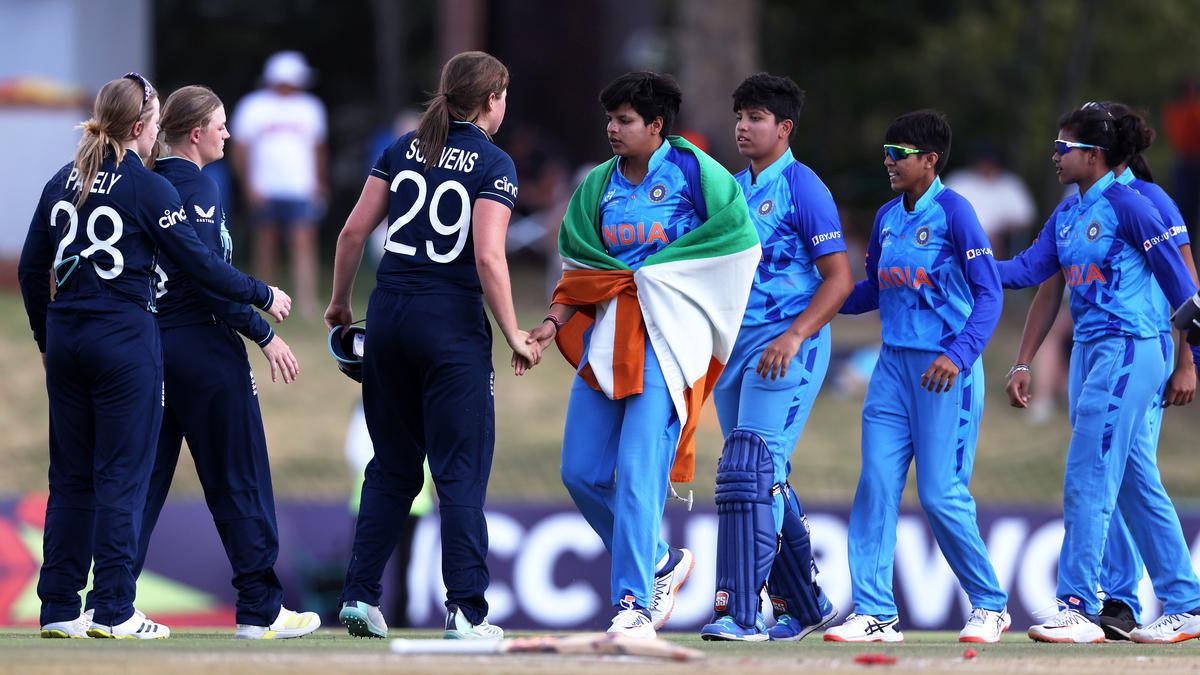Colombo, Sri Lanka – October 5th, 2025. The air in Colombo was thick with anticipation, not just for the Women`s World Cup clash between arch-rivals India and Pakistan, but for a seemingly trivial moment that carried the weight of international relations: the coin toss. As captains Harmanpreet Kaur and Fatima Sana approached the center pitch, the customary handshake, a universal symbol of sportsmanship, was conspicuously absent. This wasn`t an oversight; it was a carefully pre-orchestrated protocol, underscoring how deeply geopolitical tensions have permeated the `gentleman`s game.`
The Absence of a Simple Gesture
In the world of sport, a handshake before a match is more than mere politeness; it signifies mutual respect, fair play, and the camaraderie that transcends national boundaries. Its absence at such a high-profile fixture between India and Pakistan, however, has become a potent symbol, speaking volumes about the complex relationship between the two nations. It seems even cricket, often heralded as a bridge between peoples, now requires a pre-game security briefing for basic pleasantries, highlighting a peculiar irony in the pursuit of peace through sport.
A Precedent Set: Echoes from the Men`s Arena
This “no-handshake” stance is not an isolated incident but a continuation of a trend that emerged from the men`s Asia Cup 2025. That tournament witnessed a series of controversies that painted a stark picture of the escalating tensions between the respective cricket boards. It began when the Indian men`s team, led by Suryakumar Yadav, chose not to engage in post-match handshakes after their group-stage encounter with Pakistan. The repercussions were swift and public:
- Pakistan captain Salman Ali Agha notably skipped the post-match interview.
- The Pakistan Cricket Board (PCB) controversially released footage of their meeting with match referee Andy Pycroft, lobbying for his removal – an act that earned them an official reprimand for breaching conduct.
- During the subsequent Super Fours game, a few Pakistan players engaged in “pointed gestures” on the field, further fueling the discord.
- Perhaps the most significant incident involved the Indian team`s refusal to receive their winner`s trophy from Mohsin Naqvi, who at the time headed both the Asian Cricket Council (ACC) and PCB, in addition to serving as Pakistan`s Interior Minister. This unprecedented delay of 90 minutes before the Indian team celebrated without the physical trophy cemented the notion that politics had firmly entered the playing field.
These incidents collectively established a precedent, transforming what might have once been a minor diplomatic scuffle into a formalized protocol, now extending to the women`s game.
The ICC Steps In: Managing Expectations
The International Cricket Council (ICC), tasked with upholding the spirit of the game, found itself in an unusual position. Recognizing the palpable tension and the potential for on-field incidents, ICC match officials reportedly appraised both teams separately of the match-day protocols in advance. This proactive measure, designed to avert any “unwanted episode,” underscores the extraordinary lengths to which governing bodies must go to manage a rivalry that consistently spills beyond the boundary ropes. It highlights a pragmatic acceptance that in this particular fixture, tradition must sometimes yield to strategic diplomacy, however subtle.
Beyond the Handshake: The Match Itself
While the focus leading up to the match was heavily skewed towards these off-field dynamics, the players themselves were preparing for a World Cup encounter. Colombo served as Pakistan`s neutral base for the tournament, a necessary arrangement given the long-standing policy of the two nations not playing on each other`s soil, even with India designated as the tournament hosts. The changing weather, from sunny to cloudy, and the previous day`s washout of Sri Lanka`s match against Australia at the same venue, R Premadasa ground, were the more traditional concerns of any cricket team. Coaches like India`s Amol Majumdar and Pakistan`s Fatima Sana addressed their squads, inspected the pitch, and oversaw warm-ups – all standard routines that, for a moment, offered a semblance of sporting normalcy.
The Enduring Narrative of India-Pakistan Cricket
The saga of the non-handshake at the Women`s World Cup is a poignant reminder that for India and Pakistan, cricket is rarely just cricket. It is a microcosm of a larger, complex narrative, where historical, political, and cultural nuances converge on a sporting arena. The need for special protocols for a simple gesture like a handshake is not just a curiosity; it reflects the deep-seated realities that continue to shape their relationship. As the players take to the field, striving for victory, they carry not only the hopes of their nations but also the unspoken weight of a diplomatic chessboard, where every move, even the absence of one, is keenly observed and analyzed. The game goes on, but perhaps with a slightly heavier burden than most international sporting encounters.

